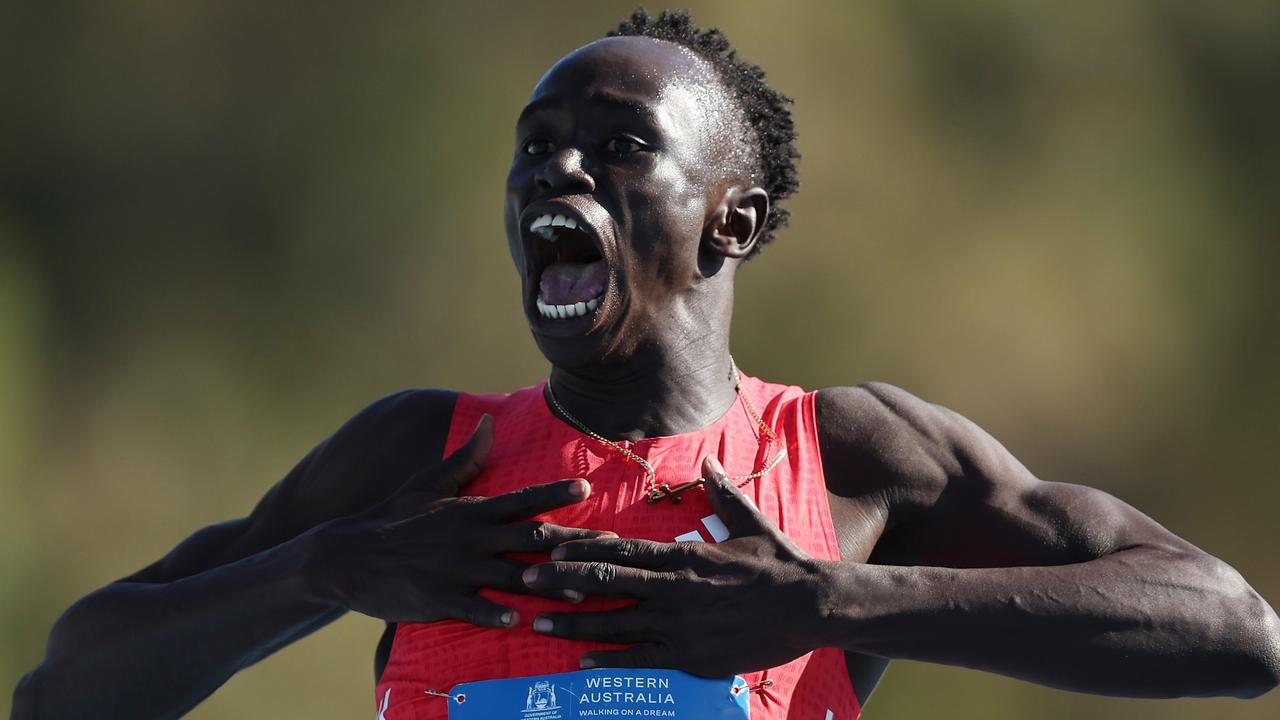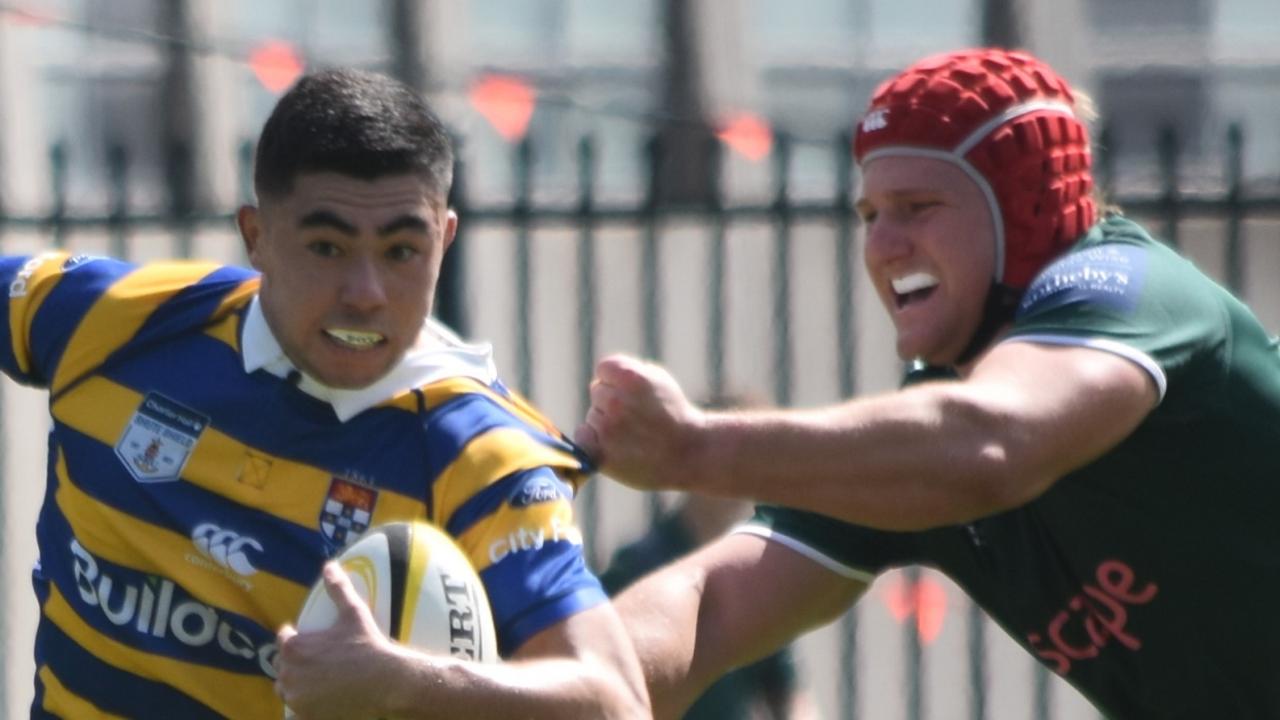Sam Kerr’s laid-back nature masks fierce desire to win
I want to know what Sam Kerr is really like. So I ask Sam Kerr.

I want to know what Sam Kerr is really like. So I ask Sam Kerr. What are you really like?
“A bit of a rat bag,” she says. “Not naughty. Just cheeky. I’ve always been like that, especially when I was younger. I started playing for Australia when I was 15. I was so naive. I just wanted to have fun. Coaches kept telling me, ‘you’ve got to knuckle down, you’ve got to get serious’. I was like, ‘nah, I just want to do my own thing, leave me alone’.”
If the Matildas had a 10pm curfew, she’d run back into the hotel at quarter-past. “Just because it felt like fun,” she says. “It wasn’t malicious stuff. Just being the class clown, I guess. I never got in trouble. I was just the one they kept their eye on. I couldn’t see myself playing soccer forever, and people may have seen that as just not caring. I was laid-back and I still am, I guess. Obviously I’m more professional now. I know my boundaries a bit better. I get the magnitude of it. I know when’s the time to have a joke and when it’s not. I was a clown at school. I still am now, I guess. I haven’t changed too much and I don’t want to.”
Look at Kerr training with the Matildas ahead of the World Cup. This much pressure hasn’t been heaped on a singular Australian athlete since Ian Thorpe and Cathy Freeman were competing at the Sydney Olympics. Since Ash Barty’s Australian Open final. Thorpe was so calm he slept like a log the afternoon of his 400m freestyle. Freeman was on edge, butterflies the size of parachutes in her stomach. Barty played with the grit and grunt of someone who’d fought for self-belief.
Kerr looks she’s having a day at the beach. Enjoying every damn second. Stop clowning around? Don’t tell her what to do.
We met five years ago. She was starting to make a serious splash as a footballer and I felt like she needed an introduction. I drove out to Parramatta in Sydney’s west, plonked next to her on a lounge in a hotel foyer and listened to her speak at a million miles an hour. She was fun. Unique. Entertaining. Joyful. Uninhibited. Matildas were to her right. They were on my left on the lounge. They were mucking around, sort of listening in, but she didn’t care. Donald Trump was making a goose of himself on a TV up on the wall. “He has no respect for women,” she said. “I think he’s racist. He constantly contradicts himself. Thank God I’m Australian. I think he’s trash.”
All her mates nodded in agreement. Clearly, she was the leader of the pack. She rarely does in-depth interviews now. No longer needs an introduction. You can’t just rock up to her hotel and lounge around for an hour. But hopefully this recollection gives you a sense of who’s at the helm of the Matildas. A strong-willed, confident and almost rebellious figure. It’s just what the team needs because there’s something significant the Matildas need to overcome when the World Cup begins next week. The history of heartache.
For all their efforts, for all the support that makes them just about the most popular national sporting team in Australia, for all Kerr’s goal-scoring prowess, for all the under-appreciated excellence of players like Ellie Carpenter and Caitlin Foord, the Matildas are yet to win a medal at a major tournament. That’s the blunt and sobering fact of the matter. Olympics and World Cups have promised everything before delivering nothing. I was at the 2016 Rio Games for the quarter-final penalty shootout against Brazil, and I’m not sure I’ve ever witnessed a more devastated group of athletes.
Rio’s Maracana Stadium has a capacity of 78,000. It felt like 100,000 Brazilians were in there, blowing horns, singing, dancing, roaring, foot-stomping from the first second to the last. It was the only time my laptop has jiggled across a media table from the wall-shaking atmosphere and noise.
The Matildas lost 7-6 on penalties. Excruciating. The image of Alanna Kennedy after the cruel final miss, with her head in her hands, utterly inconsolable, said it all. “Completely gutted,” mumbled then coach Alen Stajcic.
At the Tokyo Olympics, the Matildas’ quarter-final win over Great Britain was football and sport at its dramatic, nerve-shredding, barn-burning best. They scored late in regulation time to level at 2-2. Kerr and Mary Fowler found the net in extra time for a 4-3 win. Teagan Micah saved a penalty. Madcap. Magnificent. Two million TV viewers at home. The Matildas had the measure of Sweden in the semi-finals – but lost 1-0 after a fluke deflection. Playing for the bronze medal, they succumbed 4-3 to the United States. That’s the loneliest spot of all at an Olympics. Fourth. No podium, no medals, nothing.
The World Cups have been equally barren? Forever close-ish without really threatening to puff the cigar. Quarter-finalists in 2007, and 2011, when Kerr made her Cup debut as a 17-year-old.
In 2015 in Canada, Kyah Simon scored in the 80th minute for a famous group win over Brazil. That result proved the Matildas could beat anyone on their day. Next match, a result that proved they could lose any finals match, too, going down to Japan for another frustratingly minor placing. Four years later in France, another penalty shootout loss, this time to Norway in the round of 16. Kerr’s opening attempt blazed over the crossbar. She hasn’t been immune to the historical heartbreak. In fact, she’s been in the thick of it.
They’re the sorts of results that can scar players and teams. You feel spooked. You start to expect the worst. Eventually disappointment becomes the norm. It may very well happen again at the World Cup. The truth of the Matildas’ campaign is that nothing’s guaranteed. They’re ranked 10th in the world. On seedings, they won’t even make the quarter-finals. They should breeze through the group phase but when the knockout matches begin, there’s a bit of a curse to overcome.
Which is why the Matildas are blessed to have a captain like Kerr. Who she really is? That’s who they really need.
Who she really is doesn’t give a stuff about the past. Who she really is thinks she can win any game she plays. Who she really is fills every teammate with confidence. She has the swagger and self-belief of Novak Djokovic.
“I just keep winning,” he says. “I just keep lifting trophies,” Kerr said before winning the women’s FA Cup final with Chelsea.
The Matildas need to play with a freedom of spirit, despite the suffocating pressure of home country hopes. And they need toughness. They don’t need to look far for an example of both. Their captain has this above all else, an incandescent freedom of spirit. And she’s tough.
Never mistake the mischievousness of a self-described rat bag as an uncaring streak. She cares. Deeply. The big daydream, of course, is to win the World Cup. One of her real dreams reveals her fears. Of failure. Of giving the impression that the class clown isn’t driven to succeed.
“I dream that I’m really slow,” Kerr laughs back in the days when she still needs an introduction. “I’m a fast striker. Being slow is my worst nightmare. If I didn’t have some speed, I don’t know what I would do. I always have these dreams where I’m trying to run as fast as I can, but I’m just not fast at all. The faster I try to run, the slower I go. My legs are really heavy and I’m hardly moving. Lots of people have dreams where they’re running away from people and they can’t get away. Maybe it’s my version of that. I’m really desperate to do things on the field for my team, but I’m just way off the pace. I’m letting everyone down.
“When we lose, it’s going to feel like it’s my fault. Everyone is watching me go slow and they’re thinking that I’m not trying. That I don’t care. What they don’t know is that I’m trying so hard.”





To join the conversation, please log in. Don't have an account? Register
Join the conversation, you are commenting as Logout